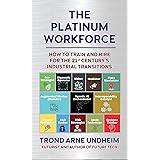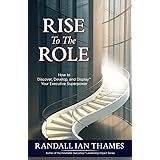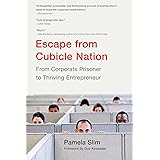Have you ever paused to consider whether your current career path is genuinely aligned with your deepest aspirations, or if it is merely a commitment born of necessity? The sentiment expressed in the video above, from a young man candidly sharing his perspective on the pitfalls of delaying one’s passions, resonates deeply with many individuals navigating the complexities of professional life. His stark reflection on working long hours for minimal reward, while others benefit immensely from his labor, serves as a powerful cautionary tale for anyone contemplating their future.
Indeed, his message is a poignant reminder that true career fulfillment is often a proactive journey, not merely a destination. This article will further explore the critical advice shared in the video, delving into the reasons why delaying your dreams can lead to professional stagnation and offering actionable insights on how to foster a more purposeful career path. It is often believed that a fulfilling professional life can only be achieved through deliberate action, and this exploration is intended to underscore that very principle.
The Peril of Procrastination: Why Delaying Your Career Dreams Can Be Detrimental
It is often observed that life’s most significant regrets are frequently rooted in actions not taken, rather than mistakes made. The speaker in the video highlights a common scenario where individuals postpone pursuing career dreams, perhaps in favor of perceived stability or a more conventional route. Consequently, years can be spent in roles that offer little personal satisfaction, leading to a profound sense of disillusionment and regret. This delay, while seemingly practical in the short term, often carries significant emotional and psychological costs.
Consider, for instance, the cumulative effect of dedicating countless hours to unfulfilling work. Imagine if your days were consistently filled with tasks that fail to ignite your passion or leverage your true talents. Over time, this daily grind can erode motivation, dampen creativity, and even impact overall well-being. Furthermore, the energy and enthusiasm that are often abundant in youth can gradually diminish, making the eventual pivot to a dream career seem like an insurmountable challenge. The importance of seizing opportunities for personal growth and exploration cannot, therefore, be overstated.
The ‘Miserable Existence’ Examined: Understanding Unfulfilling Work
The candid description of a “miserable existence” in the video, characterized by “working 12 hours a day for pennies” while “owners and investors… make millions,” paints a vivid picture of a common corporate reality. This disparity in reward for effort can be a significant source of resentment and contribute to a feeling of being a “wage slave.” Such environments are typically not conducive to fostering job satisfaction or a sense of contribution; instead, they are often perceived as exploitative.
The psychological toll of feeling undervalued and expendable cannot be ignored. When one’s hard work primarily serves to enrich others, without adequate personal return or recognition, a deep sense of injustice can be cultivated. Many individuals are finding themselves trapped in cycles of demanding labor with minimal personal reward, where the promise of a better future seems perpetually out of reach. Subsequently, a critical analysis of one’s professional circumstances becomes essential for anyone hoping to achieve genuine career fulfillment.
The Trap of Familiarity: Why Escaping Can Be Difficult
A particularly insightful point made in the video is how challenging it becomes to leave a career you hate after “a few years” because “it’s the only thing you know.” This observation speaks to the powerful human tendency towards familiarity and the inherent fear of the unknown. Once a routine is established, a certain level of comfort, however superficial, is typically created. The thought of stepping outside this established boundary can be daunting, even if the current situation is deeply unsatisfying.
Imagine, for example, the prospect of attempting a drastic career change after a decade or more in a specialized field. Not only would new skills need to be acquired, but also a new network built, and often, a temporary reduction in income accepted. These significant barriers, combined with the psychological inertia of habit, can make the perceived risk of change seem far greater than the continued endurance of an unfulfilling work situation. Consequently, proactive career planning and exploration are often recommended to mitigate these risks early on.
Embracing Youth and Opportunity: The Power of Early Experimentation
The speaker’s simple yet profound advice, “When you’re young, try things. You’ve got time,” is a cornerstone for effective career exploration. Early adulthood provides a unique window of opportunity where risks can be taken more readily, and the consequences of missteps are often less severe. This period should ideally be used for experimentation, discovering what truly ignites passion, and understanding one’s core values in a professional context.
New skills can be acquired, and passions can be discovered, through proactive exploration during this formative time. Furthermore, commitments such as mortgages, family responsibilities, or established routines are typically less restrictive in one’s earlier years, offering greater flexibility. This freedom allows for a broader range of experiences, from internships and volunteer work to side projects and online courses, all of which contribute valuable insights into potential career paths. Therefore, this phase is recognized as crucial for laying the groundwork for future success and satisfaction.
Pathways to Purpose: Practical Steps for Career Exploration
For those inspired by the video’s message to actively pursue a more meaningful career path, several practical steps can be taken. Initially, self-reflection is paramount: understanding one’s true interests, strengths, and values forms the foundation of any successful career pivot. What problems are you passionate about solving? What activities genuinely energize you, even outside of work?
Subsequently, active learning and networking are crucial. Consider enrolling in online courses, attending workshops, or even volunteering in fields of interest. These actions can provide practical experience and expand your professional network, connecting you with individuals who can offer guidance and open doors. Imagine dedicating a few hours each week to researching new industries or developing a skill that aligns with your dream career; these small, consistent efforts can yield significant long-term benefits. A clear path forward can often be illuminated by taking these deliberate actions.
Moreover, it is frequently suggested that taking calculated risks and embracing new challenges can accelerate your journey toward career fulfillment. This might involve transitioning to a new role, starting a side hustle, or even seeking a mentor who has achieved what you aspire to. The pursuit of career dreams is recognized as a vital component of a fulfilling life, and proactive engagement with this journey is strongly encouraged for lasting professional satisfaction.









